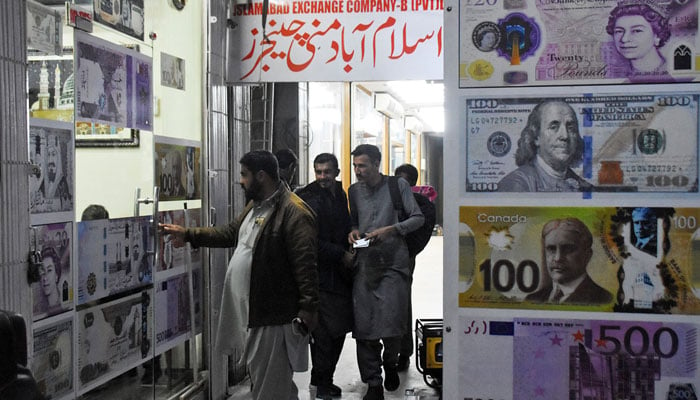Rupee’s weakness ‘still has further to run’: Fitch Solutions
Fitch Solutions refrains from issuing new forecast until ‘dust settles’; warns of broader economic implication
Fitch Solutions on Tuesday predicted that the rupee’s weakness still has “further to run”, which will have broader economic implications for the country — already gripped by a major economic crisis, with the rupee plummeting, inflation soaring and energy in short supply.
The New York-based research agency, in its quick view, noted that the rupee’s devaluation was triggered by the decision among local foreign exchange companies to remove the self-imposed cap on the exchange rate on January 25.
The State Bank of Pakistan (SBP) initially intervened, but the significant depreciation in the rupee “is a clear sign the authorities have effectively loosened their grip on the currency.”
Fitch Solutions mentioned that their current forecast for the rupee to reach Rs248 per dollar by year-end “is therefore now looking out of date”.
Following massive depreciation of 14.36% (or Rs38.74) in the last three days (Thursday-Monday), compared to Wednesday’s close at Rs230.89, the rupee’s steep fall hit brakes as it was changing hands with the greenback at Rs268.20 in the interbank market (as of 11:04am).
“We believe that the rupee’s weakness still has further to run particularly with Pakistan’s balance of payments positions likely to remain weak for several more months,” it noted.
The agency said that there remains a “considerate amount of uncertainty at this juncture” therefore it is difficult to gauge the extent to which the latest devaluation has caused investor sentiment to soar further.
“We will therefore firm up our rupee forecasts over the coming weeks, once the dust settles,” the quick view mentioned.
In its analysis, Fitch warned that a continued weakening in the rupee will have broader economic implications too in the near term, “it could exacerbate imported inflationary pressure and may eventually result in steeper policy rate hikes from the SBP.”
The report added that Fitch expects Pakistan’s economy to contract by 0.3% in the fiscal year 2022-23.
Fitch, however, mentioned that the rupee’s devaluation will help Islamabad secure further disbursements from the International Monetary Fund (IMF), which would be a positive for the longer-term outlook as it would help ease Pakistan’s balance of payments strains.
The world's fifth-biggest population has less than $3.7 billion as reserves in the State Bank — enough to cover just three weeks of imports.
It should be noted that this commentary was published by Fitch Solutions Country Risk and Industry Research and was not a comment on Fitch Ratings’ Credit Ratings.
-
Bitwise Crypto Industry innovators ETF: What investors should do in 2026?
-
Nintendo shares slide again as momentum fears grow
-
Gold, silver prices fallen sharply; What’s driving the drop?
-
Gold’s record climb: Experts question if its safety is ‘overstated’
-
Dubai unveils plans to construct street built with real gold
-
Netflix slams Paramount’s bid: 'Doesn't pass sniff test’ as Warner battle escalates
-
Ubisoft: Shares plunge amid restructuring plan and wave of games cancellations
-
Netflix revises Warner Bros. deal to $83 billion: All-cash offer












